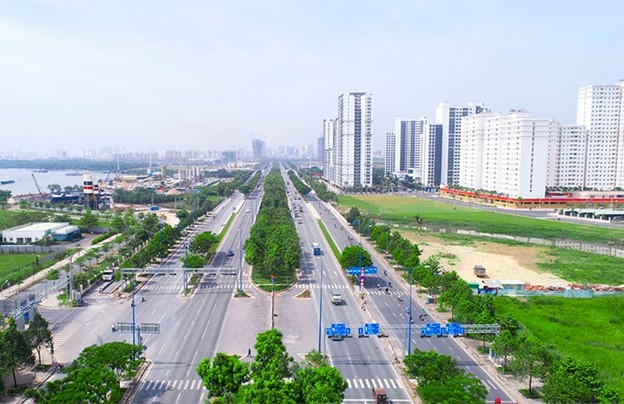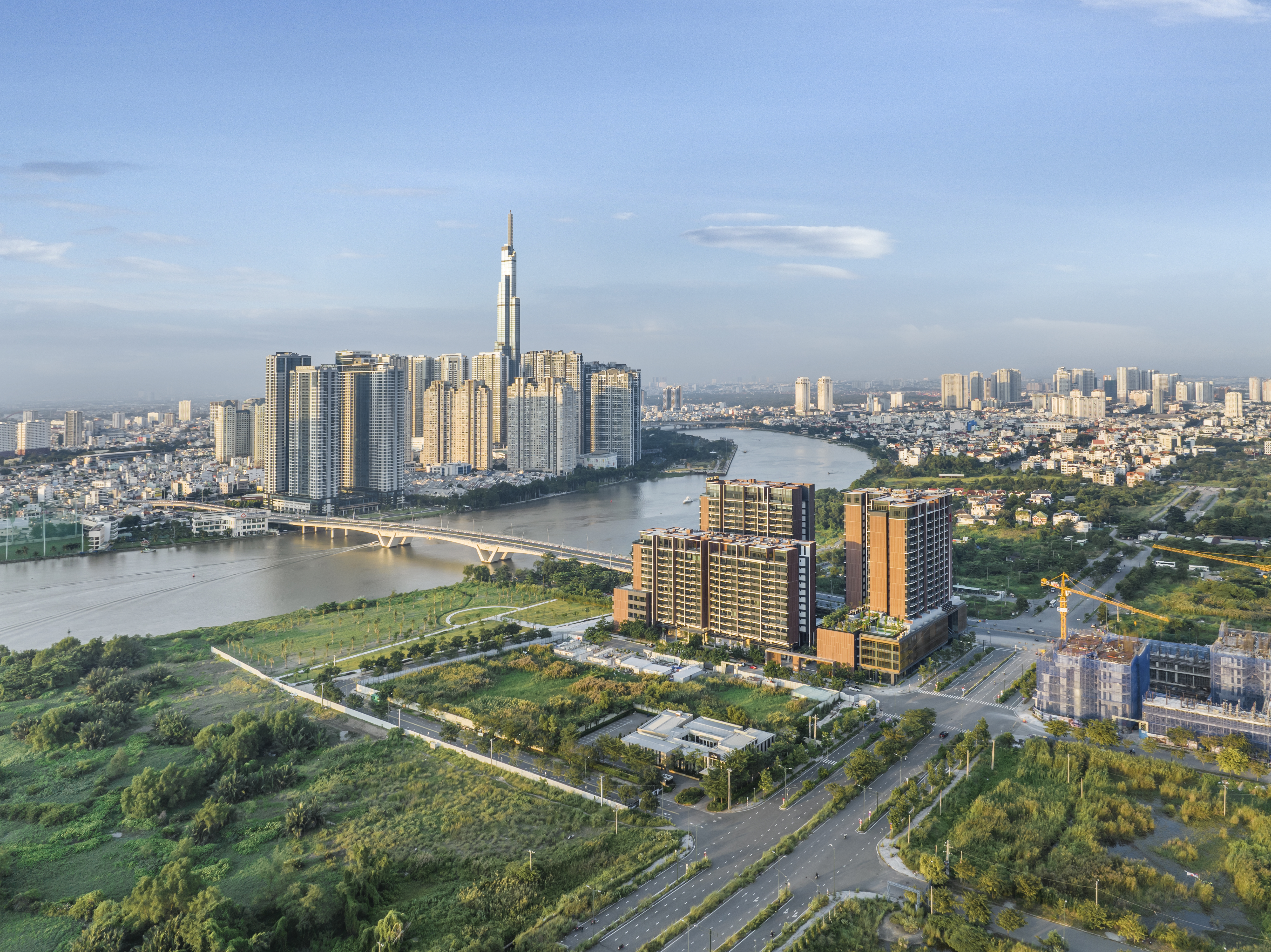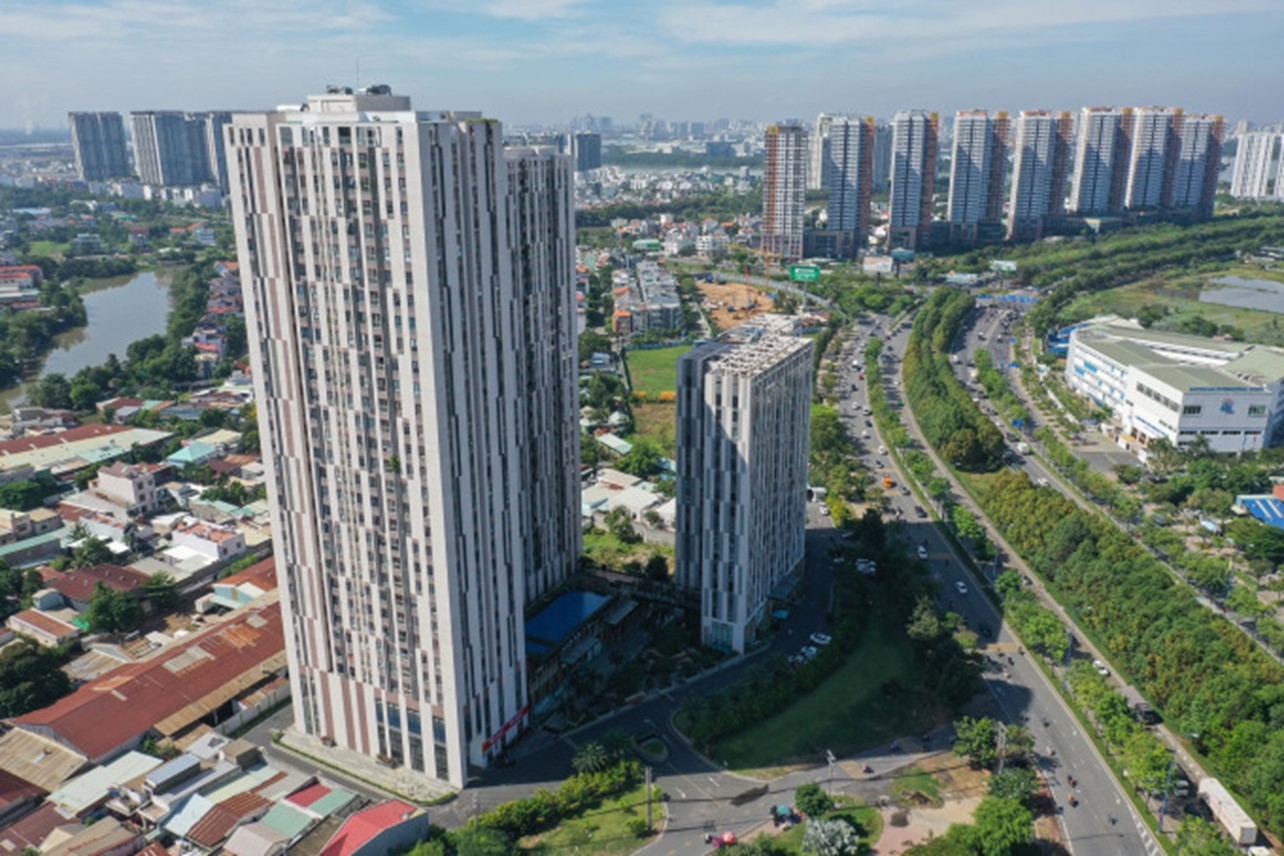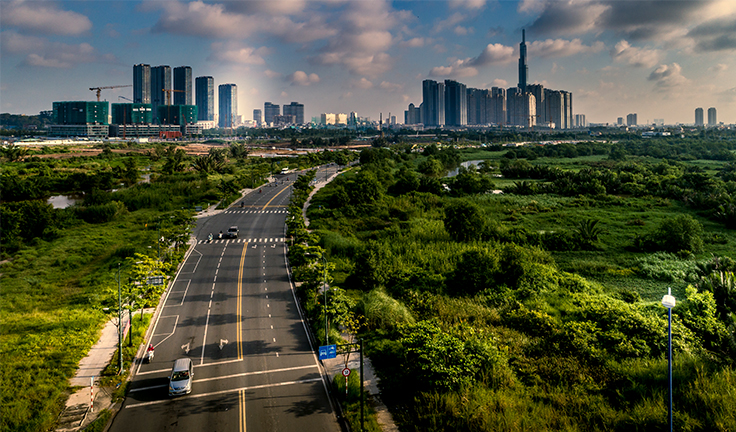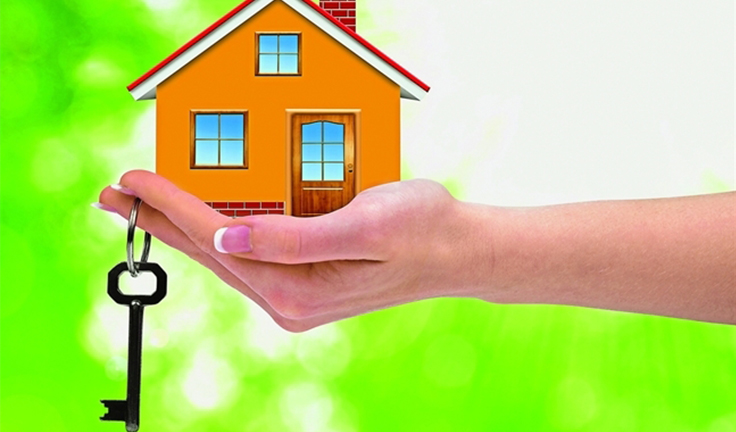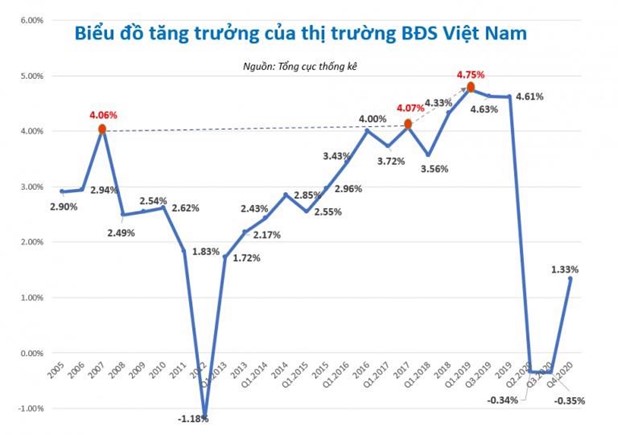
Chart of Real Estate Growth in Vietnam Across Different Periods
Real Estate Cycles in Vietnam
1993-1995: Opening and Market Formation
The enactment of the Land Law in 1993 marked a significant milestone in Vietnam's real estate market. This period witnessed the crucial initiation of the national economic opening process. Particularly noteworthy was Vietnam's signing of agreements with the United States and its formal accession to ASEAN in 1995.
These significant developments spurred Vietnam's transition from a centrally planned to a market-oriented economy, laying the foundation for a period of robust growth.
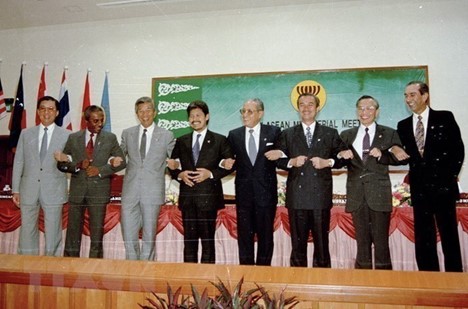
Minister of Foreign Affairs Nguyen Manh Cam at the signing ceremony of Vietnam's official accession to ASEAN on July 28, 1995. (Source: Archival Photo)
1997-1999: Crisis and Recession
The Asian financial crisis of 1997-1998 had significant global economic repercussions, and Vietnam was not immune. While the real estate market was not deeply affected, the overall economic growth faced challenges. Economic growth in 1998 was only 5.76%, while inflation reached 9.2%, leading to a recessionary phase in the real estate market.
Cycle 2: 2000 - 2006
2000-2002: Integration and Growth
Vietnam actively embraced economic integration as it entered the new millennium. The signing of the Vietnam-US Trade Agreement in 2001 was a crucial catalyst for economic growth. During the period from 2000 to 2002, Vietnam's GDP maintained stable growth.
This period also saw policies encouraging overseas Vietnamese investment in real estate, along with the introduction of new land pricing policies, leading to a significant increase in land prices.
2003-2006: Recession
Uncontrolled land price escalation led to a continuous decline in transactions from late 2003 onwards. The issuance of the Land Law in 2003 and Decree 181, which required projects to be completed before being sold, ended the practice of land parceling. Combined with the global SARS epidemic, the real estate market entered a severe recession.
Cycle 3: 2007 - 2013
2007-2009: Recovery and Growth
After four years of stagnation, Vietnam's formal accession to the World Trade Organization (WTO) in 2006 marked a significant turning point, unleashing a wave of investment following integration. The real estate market began a strong recovery and experienced significant growth from 2007 to 2008.
During this period, land prices skyrocketed, creating financial pressure on buyers and posing challenges in property access and ownership. Additionally, in 2008, inflation surged to 22%, further complicating property management and value retention.
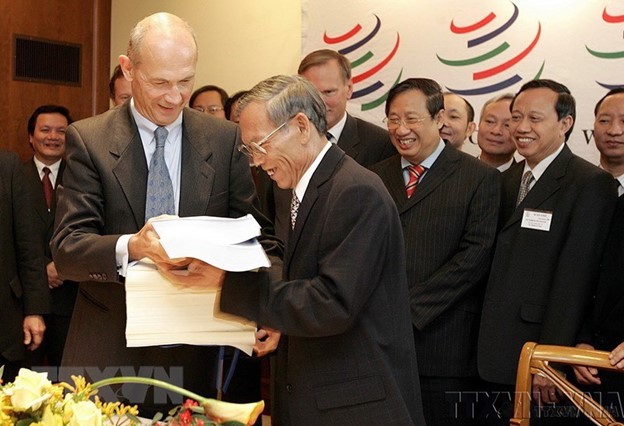
Following the growth period, Vietnam's real estate sector suffered heavily from the global economic crisis of 2008. The aftermath of this crisis plunged Vietnam into a deep recession. Many real estate companies faced difficulties, with bad debts increasing significantly. From 2008 to 2012, inflation remained high, exceeding 20%, adding pressure to the economy.
The government had to implement credit tightening policies from 2013 to control the real estate bubble, facing inflation issues, leading the real estate market to freeze from 2011 to 2013.
Cycle 4: 2014 - Present
2014-2018: Outstanding Growth
To overcome difficulties, state management agencies actively applied measures to promote the real estate market through policies such as the 30 trillion VND credit package, which focused on supporting social housing and affordable commercial housing. Regulations on foreign ownership of real estate were also passed, stimulating investment and ushering the real estate market into a period of positive growth, opening up promising prospects nationwide.
During the period from 2014 to 2018, the real estate market flourished, with various new property types emerging, and property prices experiencing a peak nationwide.

2019 - Present: Recession
Following the hot development period, the real estate market began to show signs of slowing down and recession in 2018. The main reasons were the policy review of legal procedures for many projects and the tightening of credit policies by the State Bank. From 2019 to 2021, the Covid-19 pandemic further exacerbated the slowdown of the real estate market. The market witnessed a decline in both supply and transaction volume.
According to reports from reputable real estate consulting companies such as CBRE Vietnam and Savills Vietnam, the new supply of real estate in 2023 decreased to the lowest level in the past decade. Savills Vietnam's forecast suggests that from the fourth quarter of 2023, the real estate market will experience positive changes, gradually recovering due to cooling interest rates and banks beginning to more effectively support businesses and homebuyers, while government policies are gradually easing difficulties.
Moreover, the Real Estate Business Law 2023, effective from January 1, 2025, replacing the Real Estate Business Law 2014, will have significantly positive impacts on the Vietnamese real estate market.
Conclusion
In the real estate business sector, understanding the nature and dynamics of real estate cycles is crucial for investors to develop rational investment strategies. Especially in the face of various uncertainties and risks, evaluating and making informed decisions are important to adapt to the robust development of the real estate market in recent years.



